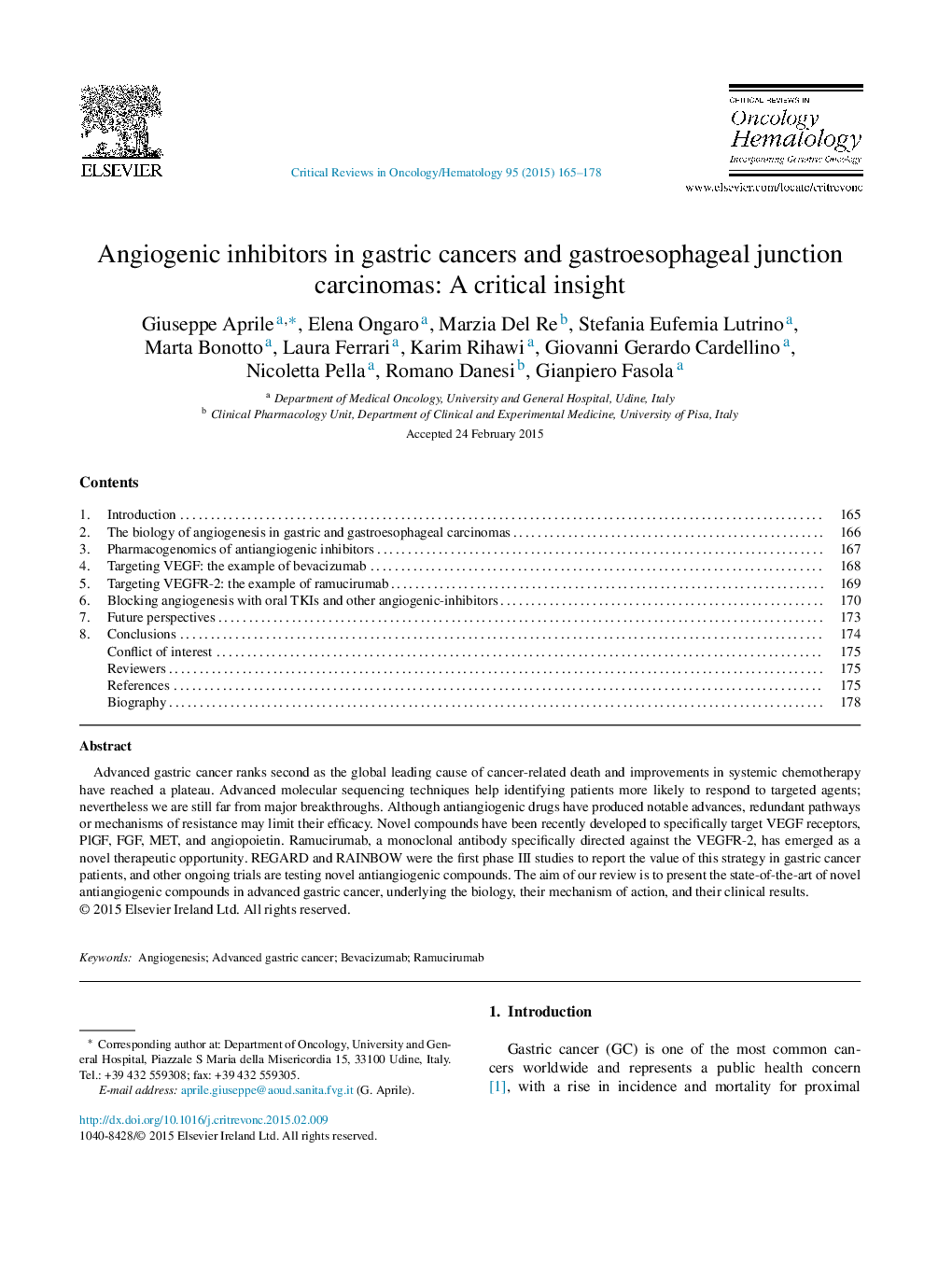| Article ID | Journal | Published Year | Pages | File Type |
|---|---|---|---|---|
| 3328600 | Critical Reviews in Oncology/Hematology | 2015 | 14 Pages |
•We discuss the rationale for the development of antiangiogenics in gastric cancers.•We review the results of key phase 2 and phase 3 clinical trials.•We present the state-of-the-art of current research in the field.•We reason on possible future scenarios of antiangiogenic treatments.
Advanced gastric cancer ranks second as the global leading cause of cancer-related death and improvements in systemic chemotherapy have reached a plateau. Advanced molecular sequencing techniques help identifying patients more likely to respond to targeted agents; nevertheless we are still far from major breakthroughs. Although antiangiogenic drugs have produced notable advances, redundant pathways or mechanisms of resistance may limit their efficacy. Novel compounds have been recently developed to specifically target VEGF receptors, PlGF, FGF, MET, and angiopoietin. Ramucirumab, a monoclonal antibody specifically directed against the VEGFR-2, has emerged as a novel therapeutic opportunity. REGARD and RAINBOW were the first phase III studies to report the value of this strategy in gastric cancer patients, and other ongoing trials are testing novel antiangiogenic compounds. The aim of our review is to present the state-of-the-art of novel antiangiogenic compounds in advanced gastric cancer, underlying the biology, their mechanism of action, and their clinical results.
